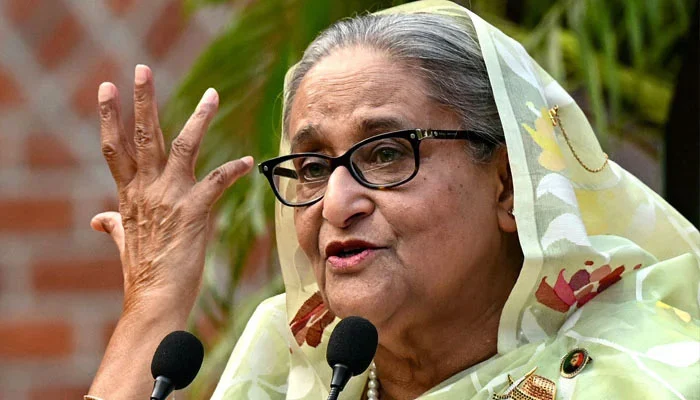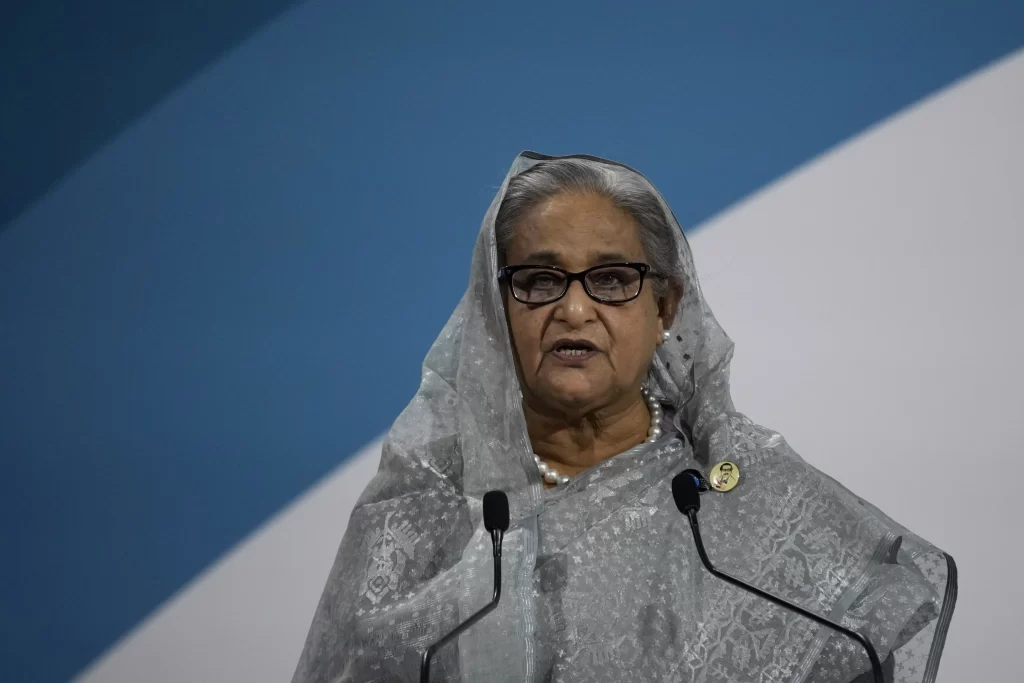A Bangladeshi court has issued an arrest warrant for former Prime Minister Sheikh Hasina, intensifying the political turmoil that has gripped the country since her ouster in August. The International Criminal Tribunal (ICT) of Bangladesh has ordered Hasina’s arrest in connection with alleged “crimes against humanity” committed during the mass protests that led to her removal from power.

Sheikh Hasina, 77, who ruled Bangladesh for over two decades, fled to India in August following widespread demonstrations against her government. The protests, which began as student-led rallies against government job quotas, escalated into mass demonstrations resulting in hundreds of casualties. According to Bangladesh’s interim health ministry, more than 1,000 people were killed during the unrest, marking the bloodiest period in the country’s history since its independence in 1971.
Mohammad Tajul Islam, the ICT’s chief prosecutor, announced that the court has ordered Hasina’s arrest and her production before the court on November 18. “Sheikh Hasina was at the helm of those who committed massacres, killings and crimes against humanity in July to August,” Islam stated. The warrant extends to 45 other individuals, including former government ministers who have also left the country.
Hasina’s government, long criticized for its autocratic tendencies and suppression of dissent, established the ICT in 2010 to investigate atrocities during Bangladesh’s 1971 war of independence from Pakistan. However, the tribunal faced criticism from the United Nations and human rights groups for procedural shortcomings and was widely perceived as a tool for Hasina to eliminate political opponents.

The former prime minister’s current whereabouts are uncertain, with her last known location being a military airbase near Delhi, India. Her continued presence in India has created diplomatic challenges, straining relations between New Delhi and the new interim government in Dhaka. Many Bangladeshis have expressed anger over India’s decision to shelter Hasina.
Complicating matters, Bangladesh’s interim government has revoked Hasina’s diplomatic passport. While a bilateral extradition treaty exists between India and Bangladesh, a clause allowing refusal of extradition for offenses of a “political character” may complicate efforts to return Hasina to face trial.
The reconstituted ICT, now under the interim government, has begun its proceedings, though critics argue it lacks judges with experience in international law. Several cases accusing Hasina of orchestrating the “mass murder” of protesters are currently under investigation by the court.
Hasina’s son, Sajeeb Wazed, has publicly stated that his mother is prepared to face trial, asserting her innocence. “My mother has done nothing wrong,” he told Reuters last month.



